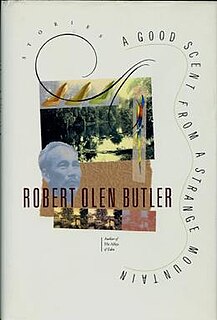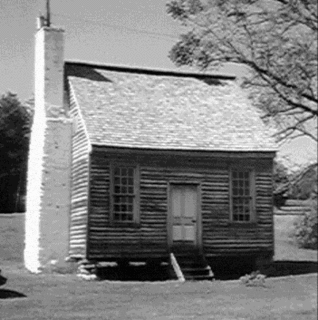Related Research Articles

The Battle of the Crater was a battle of the American Civil War, part of the siege of Petersburg. It took place on Saturday, July 30, 1864, between the Confederate Army of Northern Virginia, commanded by General Robert E. Lee, and the Union Army of the Potomac, commanded by Major General George G. Meade.

Joseph Hooker was an American Civil War general for the Union, chiefly remembered for his decisive defeat by Confederate General Robert E. Lee at the Battle of Chancellorsville in 1863.

The postage stamps and postal system of the Confederate States of America carried the mail of the Confederacy for a brief period in American history. Early in 1861 when South Carolina no longer considered itself part of the Union and demanded that the U.S. Army abandon Fort Sumter, plans for a Confederate postal system were already underway. Indeed, the Confederate Post office was established on February 21, 1861; and it was not until April 12 that the American Civil War officially began, when the Confederate Army fired upon US soldiers who had refused to abandon the fort. However, the United States Post Office Department continued to handle the mail of the seceded states as usual during the first weeks of the war. It was not until June 1 that the Confederate Post office took over collection and delivery, now faced with the task of providing postage stamps and mail services for its citizens.

Charles Bruce Catton was an American historian and journalist, known best for his books concerning the American Civil War. Known as a narrative historian, Catton specialized in popular history, featuring interesting characters and historical vignettes, in addition to the basic facts, dates, and analyses. His books were researched well and included footnotes. He won a Pulitzer Prize during 1954 for A Stillness at Appomattox, his study of the final campaign of the war in Virginia.

"For Esmé—with Love and Squalor" is a short story by J. D. Salinger. It recounts a sergeant's meeting with a young girl before being sent into combat in World War II. Originally published in The New Yorker on April 8, 1950, it was anthologized in Salinger's Nine Stories two years later.

Charles Pomeroy Stone was a career United States Army officer, civil engineer, and surveyor. He fought with distinction in the Mexican–American War, earning two brevet promotions for his performance in the conflict. After resigning and surveying for the Mexican Government, he returned to the U.S. Army to fight in the American Civil War.

The Lost Cause of the Confederacy is an American pseudohistorical negationist mythology that claims the cause of the Confederate States during the American Civil War was just, heroic, and not centered on slavery. It has continued to influence racism, gender roles and religious attitudes in the South to the present day.

Andersonville is a 1996 American television film directed by John Frankenheimer about a group of Union soldiers during the American Civil War who are captured by the Confederates and sent to an infamous Confederate prison camp.
American Heritage is a magazine dedicated to covering the history of the United States for a mainstream readership. Until 2007, the magazine was published by Forbes. Since that time, Edwin S. Grosvenor has been its editor and publisher. Print publication was suspended early in 2013, but the magazine relaunched in digital format with the Summer 2017 issue after a Kickstarter campaign raised $31,203 from 587 backers. The 70th Anniversary issue of the magazine on the subject "What Makes America Great?" includes essays by such historians as Fergus Bordewich, Douglas Brinkley, Joseph Ellis, and David S. Reynolds.

A Good Scent from a Strange Mountain is a 1992 collection of short stories by Robert Olen Butler. It received the Pulitzer Prize for Fiction in 1993.

Alexander Lafayette Chew "Alec" Wilder was an American composer.

During the American Civil War (1861–1865), Washington, D.C., the national capital, was the center of the Union war effort, which rapidly turned it from a small city into a major capital with full civic infrastructure and strong defenses.
The Nunnehi are a race of immortal spirit people in Cherokee mythology. In the Cherokee language, Nunnehi literally means "The People Who Live Anywhere", but it is often translated into English as "The People Who Live Forever", or simply "The Immortals". The Cherokee believed the Nunnehi to be a type of supernatural human being, completely distinct from ghosts and nature spirits, as well as from gods. In this sense, the Nunnehi are the Cherokee equivalent of fairies in traditional European folklore. The belief in fairy-like beings is universal among all ethnicities, including all American Indian tribes.

Monsieur, or The Prince of Darkness (1974), is the first volume in Lawrence Durrell's The Avignon Quintet. Published from 1974 to 1985, this sequence of five interrelated novels explore the lives of a group of Europeans before, during, and after World War II. Durrell uses many of the experimental techniques of metafiction that he had integrated into his Alexandria Quartet, published 1957 to 1960. He described the later quintet as a quincunx.
A large contingent of African Americans served in the American Civil War. The 186,097 Black men who joined the Union Army included 7,122 officers and 178,975 enlisted soldiers. Approximately 20,000 black sailors served in the Union Navy and formed a large percentage of many ships' crews. Later in the war, many regiments were recruited and organized as the United States Colored Troops, which reinforced the Northern side substantially in the last two years. Both Northern Free Negro and Southern runaway slaves joined the fight. Throughout the course of the war, black soldiers served in forty major battles and hundreds of more minor skirmishes; sixteen African Americans received the Medal of Honor.

A Stillness at Appomattox (1953) is a non-fiction history book written by Bruce Catton. It recounts the American Civil War's final year, describing the campaigns of Ulysses S. Grant in Virginia during 1864 to the end of the war in 1865. It is the final volume of Catton's Army of the Potomac trilogy, having been preceded by Mr. Lincoln's Army (1951) and Glory Road (1952).

During the American Civil War, music played a prominent role on both sides of the conflict, Union and Confederate. On the battlefield, different instruments including bugles, drums, and fifes were played to issue marching orders or sometimes simply to boost the morale of one's fellow soldiers. Singing was also employed not only as a recreational activity but as a release from the inevitable tensions that come with fighting in a war. In camp, music was a diversion away from the bloodshed, helping the soldiers deal with homesickness and boredom. Soldiers of both sides often engaged in recreation with musical instruments, and when the opposing armies were near each other, sometimes the bands from both sides of the conflict played against each other on the night before a battle.

The Charles Sweeney Cabin is a structure within the Appomattox Court House National Historical Park. It was registered in the National Park Service's database of Official Structures on June 26, 1989.

Eleanor Catton is a New Zealand novelist and screenwriter. Born in Canada, Catton moved to New Zealand as a child and grew up in Christchurch. She completed a Master's degree in creative writing at the International Institute of Modern Letters. Her award-winning debut novel, The Rehearsal, written as her Master's thesis, was published in 2008, and has been adapted into a 2016 film of the same name. Her second novel, The Luminaries, won the 2013 Man Booker Prize, making Catton the youngest author ever to win the prize and only the second New Zealander. It was subsequently adapted into a television miniseries, with Catton as screenwriter.
The American Civil War Centennial was the official United States commemoration of the American Civil War, also known as the War Between the States. Commemoration activities began in 1957, four years prior to the 100th anniversary of the commencement of hostilities, and ended in 1965 with the 100th anniversary of the surrender at Appomattox.
References
- ↑ Catton, Bruce (1960). "Names from the War". American Heritage . 12 (1): 18–21.
- ↑ Lambert, Philip (2013). Alec Wilder. University of Illinois Press. p. 91. ISBN 978-0-252-03760-3. Archived from the original on 2021-07-05. Retrieved 2021-01-14– via Project MUSE.